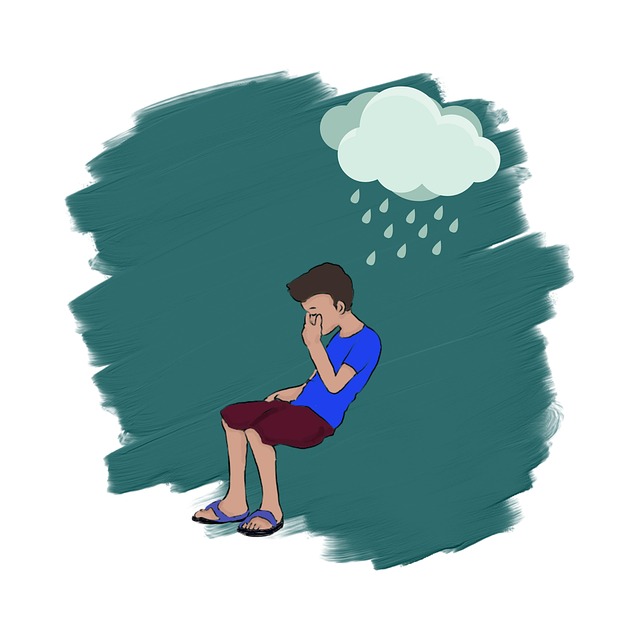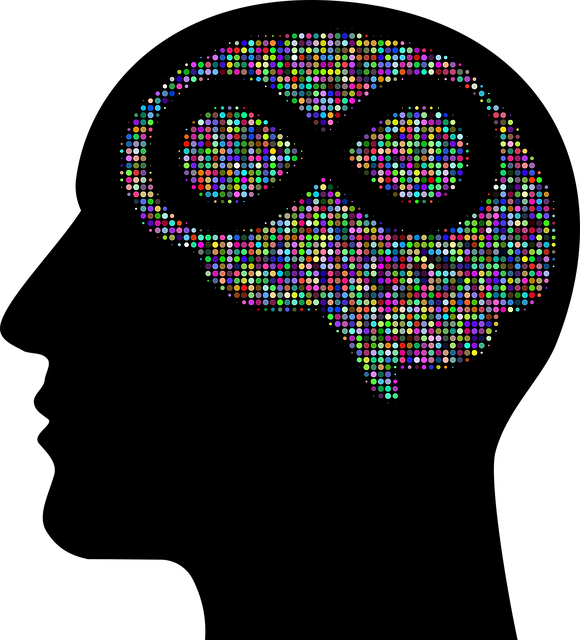Online therapy platforms revolutionize mental wellness support for young adults, offering accessible, tailored programs addressing anxiety, depression, and stress. These solutions incorporate evidence-based practices, cultural sensitivity training, and interactive tools like mood tracking to enhance effectiveness. Evaluation metrics include satisfaction surveys, behavioral changes, self-reported assessments, and attendance rates, ensuring program success and fostering positive mental health outcomes. Continuous improvement through feedback loops integrates emotional intelligence training, tailoring support to individual needs in a dynamic digital space.
Mental wellness programs are evolving to meet the unique needs of young adults, with online therapy platforms leading the charge. This article explores specialized approaches and the benefits they offer in addressing emerging mental health challenges. We delve into assessment tools tailored to gauge mental wellness, emphasizing key metrics for evaluating program effectiveness. Additionally, we discuss continuous improvement through feedback loops, highlighting how these strategies enhance and optimize support for young adults seeking therapy online.
- Understanding the Need for Specialized Programs
- Online Therapy Platforms and Their Benefits
- Assessment Tools for Measuring Mental Wellness
- Evaluating Program Effectiveness: Key Metrics
- Continuous Improvement through Feedback Loops
Understanding the Need for Specialized Programs

The unique challenges faced by young adults in today’s fast-paced world necessitate specialized mental wellness programs tailored to their needs. This demographic often grapples with issues like anxiety, depression, and stress related to academic pressures, career uncertainties, and social expectations, which may not be adequately addressed by generic therapy approaches. Online therapy, for instance, has gained prominence as a convenient and accessible solution for young adults seeking support from the comfort of their homes. However, designing effective programs requires a deep understanding of this demographic’s cultural nuances and specific challenges.
Specialized programs should incorporate evidence-based practices such as emotional regulation strategies, mindfulness meditation techniques, and other innovative therapeutic modalities to cater to diverse needs. Furthermore, ensuring healthcare provider cultural competency training is paramount to creating inclusive environments where young adults feel understood and supported. This consideration fosters trust, encourages open communication, and enhances the overall effectiveness of mental wellness initiatives targeting this age group.
Online Therapy Platforms and Their Benefits

The rise of online therapy platforms has revolutionized access to mental health services, especially for young adults seeking therapy for young adults. These digital tools offer a range of benefits that make online therapy an attractive and effective option. One significant advantage is their accessibility; individuals can now connect with licensed therapists from the comfort of their homes, removing geographical barriers. This is particularly advantageous for those in remote areas or with limited mobility.
Moreover, online platforms often provide a more affordable and flexible alternative to traditional face-to-face therapy. Many young adults find emotional well-being promotion techniques and mental wellness journaling exercise guidance seamlessly integrated into these platforms, fostering self-care practices. Additionally, they offer a safe and confidential space for clients to explore their mental health concerns, often leading to improved anxiety relief. With the growing acceptance and advancement of online therapy, individuals can now access valuable support and resources without leaving their digital spaces.
Assessment Tools for Measuring Mental Wellness

Assessing mental wellness is a multifaceted process that involves various tools tailored to different aspects of an individual’s psychological well-being. Online therapy platforms, designed specifically for young adults, have integrated advanced assessment tools to make this process more accessible and efficient. These tools go beyond traditional self-reporting questionnaires by incorporating dynamic measures such as real-time mood tracking and interactive exercises that encourage positive thinking. By leveraging technology, online therapy offers a convenient and discreet way for young adults to monitor their mental health progress.
Moreover, the design of mental health education programs plays a crucial role in fostering self-esteem improvement. Through engaging content delivered via these platforms, users can gain valuable insights into managing stress, anxiety, and depression. The integration of evidence-based practices and interactive learning modules empowers individuals with practical tools to enhance their overall mental wellness. This personalized approach ensures that young adults receive the support they need to navigate life’s challenges while cultivating a positive mindset.
Evaluating Program Effectiveness: Key Metrics

Evaluating the effectiveness of mental wellness programs, particularly those geared towards young adults, is a multifaceted process. Key metrics play a crucial role in understanding the impact and success of online therapy sessions or other interventions. One primary measure is participant satisfaction, gauged through surveys that assess the quality of service delivery, ease of access, and personal relevance. Another vital indicator is behavioral change; observing improvements in self-care routines developed during these programs can demonstrate their long-term potential for burnout prevention.
Self-reported mental health assessments before and after the program are also essential, allowing individuals to share subjective experiences of relief from stress, anxiety, or depression. Objectively, tracking attendance rates and adherence to therapeutic protocols provides insights into the program’s design and appeal. These metrics collectively contribute to a comprehensive evaluation, ensuring that therapy for young adults online or other mental health education programs meet their intended goals, fostering positive mental wellness outcomes and encouraging continued self-care practices.
Continuous Improvement through Feedback Loops

The evaluation of mental wellness programs is an iterative process that enables continuous improvement, especially when leveraging feedback loops. These loops facilitate a dynamic approach to therapy for young adults by integrating real-time insights from participants into program design and delivery. Through online platforms offering therapy and social skills training, individuals can provide valuable feedback on their experiences, highlighting strengths and areas for enhancement. This data is then analyzed to make informed decisions about adjusting the program’s content, structure, or delivery methods.
By incorporating emotional intelligence and social skills training as integral components of mental wellness programs, the feedback process becomes more nuanced. The loops allow for a tailored approach, where specific elements can be reinforced or modified based on individual needs. This ensures that online therapy remains relevant and effective in addressing the evolving mental health landscape for young adults.
The integration of online therapy platforms and specialized mental wellness programs offers a promising approach to improving young adults’ access to care. By leveraging technology, these innovative solutions democratize mental health support, breaking down barriers to treatment. Utilizing robust assessment tools and focusing on key effectiveness metrics, we can ensure these programs deliver tangible benefits. Continuous improvement through feedback loops is essential to refining these initiatives, ultimately enhancing the well-being of young adults worldwide. Online therapy for young adults holds immense potential, and with careful evaluation methods, we can unlock its full power.










